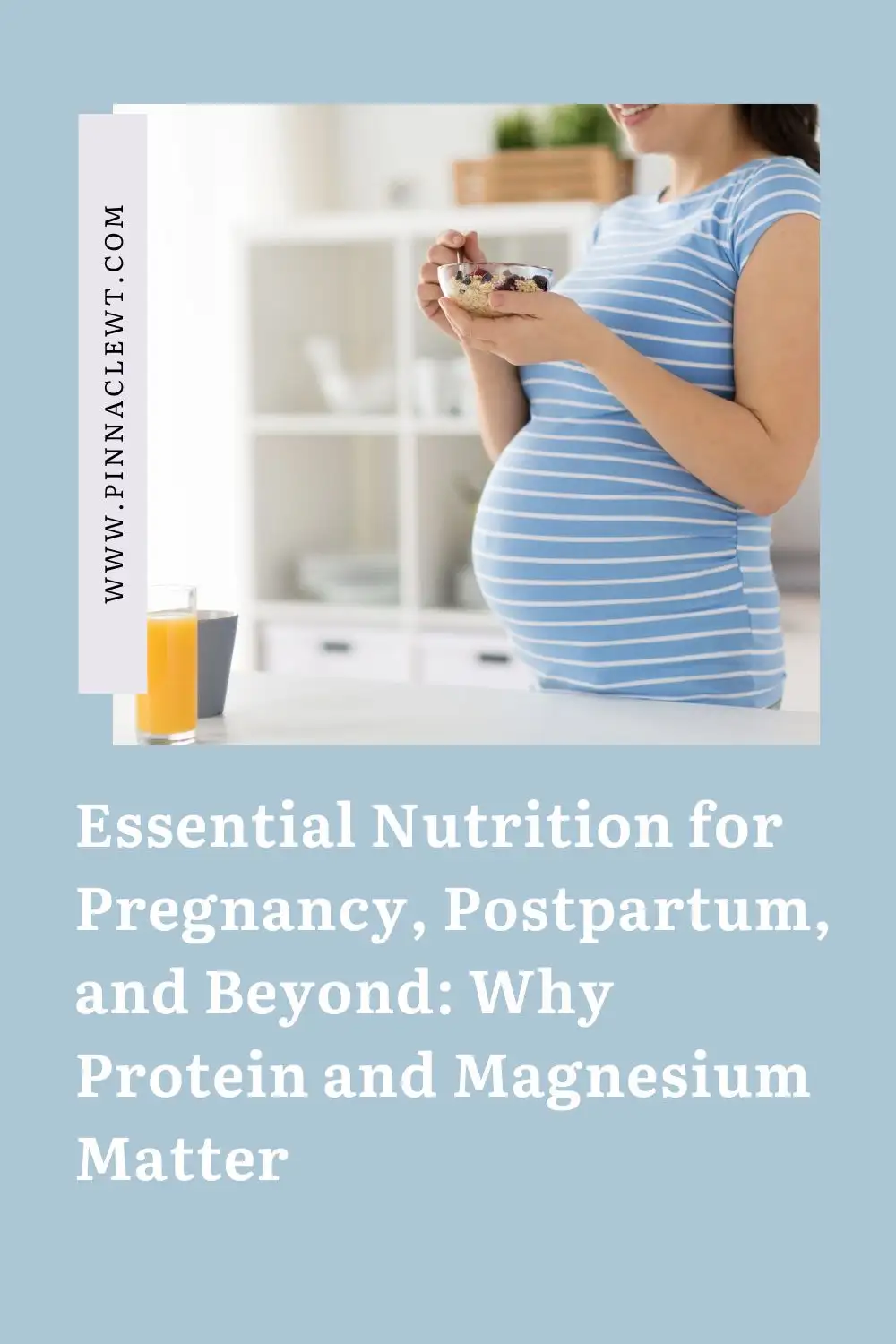When it comes to nutrition during pregnancy, postpartum, and beyond, two key elements often get overlooked: protein and magnesium. Both of these nutrients are essential for supporting energy levels, muscle recovery, and long-term health. While this blog post doesn’t cover all of your nutritional needs, it highlights the importance of these two powerhouses for optimal health during pregnancy, postpartum recovery, and the years beyond.
Protein: The Foundation of Energy, Bone Health, and Recovery
Protein plays a crucial role throughout pregnancy, postpartum, and even as you age. Not only does it support muscle repair and energy, but it’s also vital for bone health-something many women may not associate with protein intake.Protein’s Impact on Bone Health:
- Bone Structure: Protein makes up about 50% of bone volume, providing the structural matrix that gives bones their strength and resilience.
- Calcium Absorption: Protein enhances intestinal calcium absorption, ensuring your body gets the most from calcium-rich foods.
- IGF-1 Levels: Protein increases levels of insulin-like growth factor (IGF-1), a hormone crucial for bone health and repair.
- Lean Muscle Mass: By improving lean muscle mass and strength, protein helps boost bone mineral density (BMD), which is important for maintaining strong, healthy bones.
- Bone Resorption: Protein has been shown to decrease bone resorption at the cellular level, reducing the natural breakdown of bone.
Pregnancy Benefits:
Adequate protein intake during pregnancy not only supports your baby’s growth and development but also helps regulate blood sugar and prevent gestational diabetes when combined with healthy fats. Protein also plays a key role in preventing fatigue and supporting the many physiological changes happening in your body.Postpartum & Beyond:
In the postpartum phase, protein is essential for muscle repair, tissue healing, and producing the energy required for breastfeeding. Additionally, protein can significantly impact metabolic health in the long term, especially as women age and need to focus on preserving muscle mass. Research shows that starting your day with a protein-rich meal can help regulate hunger throughout the day. A study comparing teens who ate oatmeal for breakfast versus those who had an omelet found that the oatmeal group consumed over 80% more calories later in the day, despite both meals containing the same calories.High-Protein Breakfast Ideas:
Starting the day with a protein-packed breakfast sets the tone for stable energy and reduced cravings.- Greek Yogurt Protein Bowl:
- Ingredients: 1 cup organic Greek yogurt, 1 scoop Equip Foods Prime Protein (or another clean protein powder), 1/4 cup fresh berries, and a drizzle of honey.
- Protein content: ~35g
- Egg & Veggie Scramble:
- Ingredients: 3 eggs, 1/2 cup diced vegetables (like spinach and bell peppers), 2 tablespoons of feta cheese, and 1 tablespoon olive oil.
- Protein content: ~30g
- Protein-Packed Smoothie:
- Ingredients: 1 cup almond milk, 1 scoop of clean protein powder, 1 tablespoon almond butter, 1/2 banana, 1 tablespoon chia seeds.
- Protein content: ~32g
- Vegan Tofu Scramble:
- Ingredients: 1/2 block firm tofu, 1 tablespoon nutritional yeast, 1/2 cup spinach, and 1 tablespoon olive oil.
- Protein content: ~30g
- Cottage Cheese & Almond Butter Bowl:
- Ingredients: 1 cup cottage cheese, 1 tablespoon almond butter, 1/4 cup blueberries, and a dash of cinnamon.
- Protein content: ~35g
Magnesium: The Overlooked Mineral with Powerful Benefits
While protein is essential, magnesium plays a major role in pregnancy, postpartum recovery, and hormonal health. According to magnesium researcher Mildred Seelig, “Pregnancy is a magnesium-deficient state.” This is because eight of the ten enzymes present in the uterus require magnesium to function. In pregnancy, magnesium helps prevent complications, while postpartum, it aids in hormone regulation and recovery.How Much Magnesium Do You Need?
For non-pregnant individuals, Seelig’s formula recommends about 5 mg of magnesium per pound of body weight. During pregnancy, magnesium needs increase to 6-8 mg per pound to support your body’s additional demands. Most women aim for around 500 mg daily, which can be achieved through a combination of foods and supplements.Why Magnesium Matters in Pregnancy and Postpartum:
Preventing Complications: Adequate magnesium during pregnancy helps reduce the risk of leg cramps, preterm labor, high blood pressure, fatigue, and even gestational diabetes. Magnesium is also crucial in preventing postpartum depression and supporting overall recovery.- Estrogen Metabolism: Magnesium is essential for metabolizing hormones, including estrogen. This is especially important in the postpartum phase when your body is working hard to balance hormone levels. Magnesium helps the liver break down “dirty estrogen,” reducing the risk of hormonal imbalances.
- Hormonal Balance: Magnesium plays a key role in balancing estrogen, progesterone, and testosterone. This balance is crucial for mood stabilization, reducing anxiety, and alleviating symptoms like hot flashes and mood swings.
- Improved Sleep and Recovery: Many women struggle with sleep disturbances after giving birth, which can be exacerbated by hormonal changes. Magnesium supplements can help improve sleep quality, which is vital for recovery and well-being.




